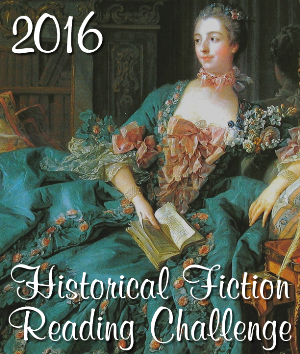 Elizabeth Kostova’s 2005 novel The Historian was my first read of 2016. I actually started it some time in November, but I set it aside and just dipped in and out until this last week, when I read the bulk of the novel.
Elizabeth Kostova’s 2005 novel The Historian was my first read of 2016. I actually started it some time in November, but I set it aside and just dipped in and out until this last week, when I read the bulk of the novel.
The Historian is the story of Vlad the Impaler, sometimes known as Dracula, and the historians interested in tracing his existence and locating his final “resting” place. The unnamed narrator of the story becomes embroiled in the search for Dracula through her father, Paul, who disappears mysteriously. She embarks on a quest to find him, and through some epistolary and framing elements, she gradually learns the story of her own parents’ quest for Dracula, taken up when her father tried to find his missing mentor and dissertation advisor, Bartholomew Rossi.
The novel has been compared somewhat unfairly to The Da Vinci Code because it has elements of scholarship and elements of a literary thriller, but I’m not sure it’s a fair comparison. It is better written, and the characters are somewhat more developed than Dan Brown’s characters; however, there is still the sense that most of the characters are almost sort of like action figures the author is moving around instead of really well-drawn characters. Intriguingly, it is the minor characters, such as Rossi, Helen’s mother and aunt, and the Professor in Instanbul, Turgut Bora, who emerge as more interesting and fully formed than any of the protagonists. I question whether the framing device was really necessary. I don’t think the structure of the plot needed to be quite so complicated because it didn’t really do a whole lot to further the plot. All of the stories within stories were not confusing or hard to follow so much as they seemed unnecessary. Still, even with these criticisms, I would say I enjoyed the book and found it to be a sufficiently creepy vampire story, and not just a vampire story, but also a story of the Cold War and the complicated issues scholars might have dealt with in trying to conduct research behind the Iron Curtain. I have read criticism that the climax in this book is not really a good payoff, and I would agree with that criticism. On top of that, I think the reader leaves the book a bit confused (or perhaps that’s just me), especially as to why the author chose to end the book in the way she did.
I’m a little confused about how to rate this book because while I enjoyed it, it’s not without some serious flaws, and some people might not enjoy the book at all because of those flaws, but ultimately, for what it is and what it does do, I went with four stars. Your mileage may vary.
Rating:




 Set mostly during the 1950’s and 1970’s in many locations in Europe. Some exploration of medieval Romania and Turkey in the characters’ research.
Set mostly during the 1950’s and 1970’s in many locations in Europe. Some exploration of medieval Romania and Turkey in the characters’ research.
